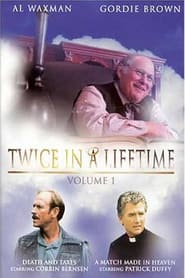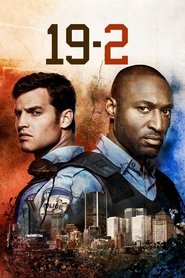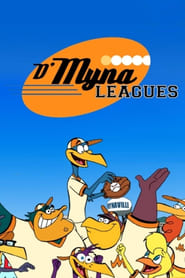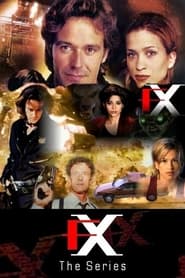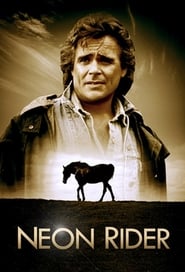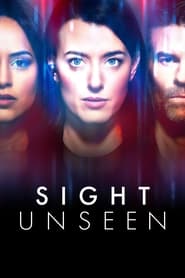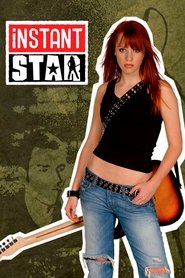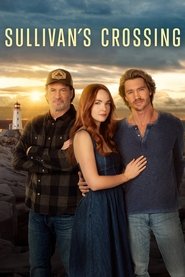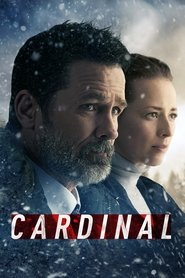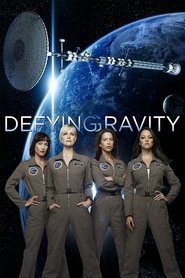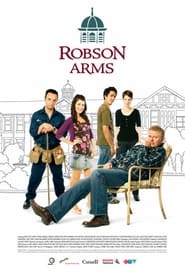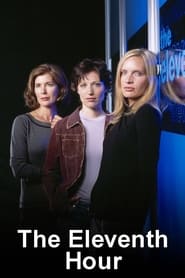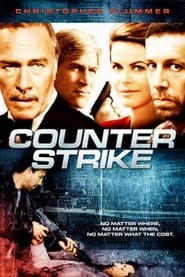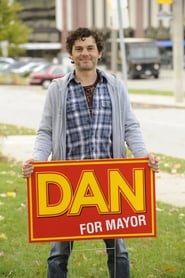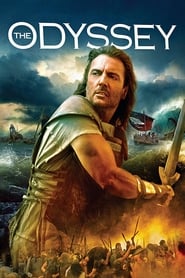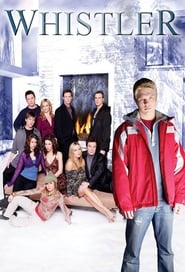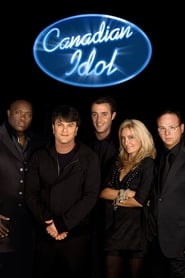Ctv TV Series - Page 2
-
The Good Stuff with Mary Berg
2023
A daily hour of fun, food, and laughs, featuring lifestyle trends, home hacks, audience games, and inspiring stories – all from top experts. Mary Berg dives right in – from sharing daily, delicious and approachable recipes for the home cook, to cook-a-long sessions with guest chefs, and getting her hands dirty with gardening, DIYs, home renovations and more. As well, Berg welcomes notable guests, including authors, celebrities, influencers, and everyday heroes. -
Twice in a Lifetime
1999
star 5.5Prematurely deceased people are given the opportunity to correct something that went wrong in their lives and thus change them for the better. -
19-2
2014
star 7.8The day-to-day life of two unwilling partners of the Montreal Police Department, Officers Nick Barron and Ben Chartier. These two beat cops patrol the urban sprawl of downtown's 19th district, in cruiser No. 2. 19-2 is about the tensions and bonds that develop between two incompatible men of very different temperaments and life experiences. Over time, Nick and Ben's mistrust and antagonism for each other give way to moments of mutual respect and a wavering chance at a true partnership. -
D'Myna Leagues
2000
star 6Loosely based on the baseball writing of W. P. Kinsella, the series was set in a world populated by anthropomorphic birds, and centred on the minor league baseball team in the town of Mynaville. The baseball games were represented by placing two-dimensional characters in three-dimensional backgrounds. The teams of bird characters were opposed by rival teams like the Weasels, the Pigs, the Beavers and the Elephants. -
FX: The Series
1996
star 6.2Rollie Tyler, a special effects expert, helps his detective friend solve crimes by making criminals see what they want to see. But what is real and what is illusion? -
Time Story
2008
star 8This epic period piece follows the lives of several families in a military village from the 1960s to the 1990s. -
Neon Rider
1989
star 7.3Neon Rider is a Canadian drama television series, the show was about the titular character, a man named Michael Terry who quits his job as a therapist to become a mentor for troubled kids which he brings to his ranch, to teach them to lead a better life. -
Sight Unseen
2024
star 7.5Homicide detective Tess Avery is forced to quit the job she loves after nearly killing her partner and being diagnosed as clinically blind. Reluctant to accept help, Tess uses an assistance app and connects with Sunny Patel, a professional seeing-eye guide and agoraphobe living 3,000 miles away. Haunted by the unsolved cases she left behind, Tess uses a hidden camera and earpiece, while Sunny remotely steers Tess through life's obstacles -- and crimes -- as the two challenge preconceptions about ability, trust and where to draw the line. -
Instant Star
2004
star 6.2When Jude Harrison enters G Major’s singer/songwriter contest, she knows her stuff will kill, but she’s shocked when she learns she won the whole darn thing! Now, with a recording contract, a soon-to-be released single and a mega-crush on her producer, Jude’s wading through a world bigger than her wildest rock n’ roll dreams. Thrust into the spotlight, Jude is desperate to prove she belongs there…but she’s not even old enough to drive. -
Sullivan's Crossing
2023
star 8.9After Neurosurgeon Maggie Sullivan’s personal and professional life are thrown into turmoil she returns home to Sullivan’s Crossing. While there, Maggie is forced to navigate her complicated present while confronting the painful past she has chosen to ignore for years. -
Cardinal
2017
star 6.9Detective John Cardinal attempts to uncover the mystery of what happened to the missing 13-year-old girl whose body is discovered in the shaft-head of an abandoned mine. At the same time, he comes under investigation by his new partner, Lise Delorme, a tough investigator in her own right. -
Defying Gravity
2009
star 6.6In the very near future, a team of eight astronauts embarking on a six-year journey to explore Venus and other planets in the solar system, find their lives and destinies intertwined and carefully directed, not only by Mission Control officials on Earth, but also by an unseen force which is much closer and far more powerful. -
Robson Arms
2005
star 4.8Robson Arms follows the lives of the tenants in a once-grand low-rise in Vancouver's eclectic West End. The building is home to an unlikely collection of characters who live under one roof, yet occupy different worlds. One thing is certain, you'll never see your neighbours the same way again. -
Canada's Next Top Model
2006
Canada's Next Top Model is a Canadian reality show in which female contestants compete for the title "Canada's Next Top Model" and a chance to start their career in the modeling industry. The winner receives a modeling contract from Elmer Olsen Modeling Agency, a $100,000 beauty contract from Procter & Gamble, and an editorial spread in Fashion magazine. CNTM is based on the successful American franchise America's Next Top Model. It is produced by Temple Street Productions in association with CTVglobemedia and CBS Paramount International TV. Three cycles have been produced and aired. -
The Eleventh Hour
2002
star 4.8The Eleventh Hour is a Canadian television drama series which aired weekly on CTV from 2002 to 2005. The show revolves around the reporters and producers at a fictional television newsmagazine series, The Eleventh Hour. Unhappy with the newsmagazine's shrinking audience, the network has brought in a new executive producer, Kennedy Marsh, to reorient the show in a more ratings-driven tabloid journalism direction. The tension between the ratings imperative and the more traditional journalistic ethics of the show's senior staff is the primary conflict that drives the show, but storylines also include the team's efforts to get the stories that will make it to air each week. The Eleventh Hour was produced by Alliance Atlantis, Canada's largest film and television production house. It aired in the U.S. on Sleuth, under the title Bury the Lead, to distinguish it from a CBS series with a similar name. -
Counterstrike
1990
star 7Counterstrike is a Canadian/French crime-fighting/espionage television series. It premiered on November 2, 1991 on CTV in Canada and on November 20, 1991 on TF1 in France. It also aired in the United States on cable channel USA Network, premiering on July 1, 1990. The series ran for three seasons, airing 66 hour-long episodes in total. Counterstrike has since aired in reruns in Canada on Showcase and TVtropolis. -
Dan for Mayor
2010
star 4.5Dan Phillips is a 30-something bartender who lives and works in the ordinary city of Wessex. Dan's had the same friends since grade school, his most prized possession is a vintage Ms. Pac-Man game and his last serious relationship was with a girl who is now engaged to someone else. His life seems to be firmly on the path to more of the same... until a chance comment suddenly puts him in the running for mayor of Wessex. -
The Odyssey
1997
star 7.2In this adaptation of Homer's timeless epic, Armand Assante stars as Odysseus, the warrior King of the mythical island of Ithaca, who must endure a decade long quest to reach home after the Trojan war, overcoming savage monsters, powerful forces of nature, and seductive nymphs, and he must outsmart them all, with all the guile and intellect he can muster. -
Whistler
2006
Whistler
2006
Local snowboarding legend Beck McKaye returns home from the 2006 Torino Winter Olympics with a gold medal, only to be later found dead. -
Canadian Idol
2003
star 4Canadian Idol was a Canadian reality television competition show which aired on CTV, based on the British show Pop Idol. The show was a competition to find the most talented young singer in Canada, and was hosted by Ben Mulroney. Jon Dore was the "roving reporter" for the first three seasons. Elena Juatco assumed the role for season four, Dave Kerr had the role in season five and Jully Black in season six. The show began with a cross-Canada tour in which singers audition in front of four judges: Jake Gold of Toronto, Sass Jordan of Montreal, Quebec, Zack Werner of Winnipeg, Manitoba, and Farley Flex of Ajax, Ontario. Eventually the performers were narrowed down to 10 finalists, with each competitor performing live. Viewers had two hours following the broadcast of the show to phone in their votes for their favourite competitor. On the following night's episode, the competitor with the fewest votes was sent home. After the final two perform, viewers had more than two hours to vote. The next day, the competitor with

